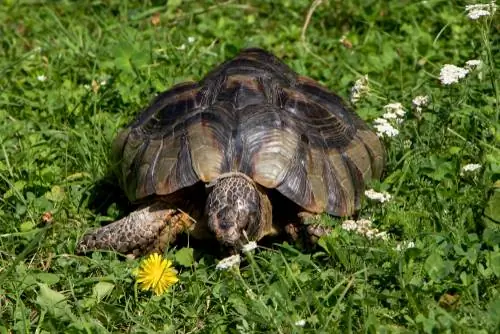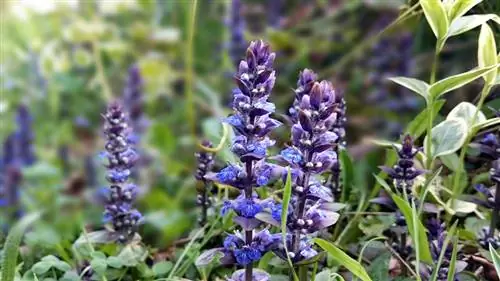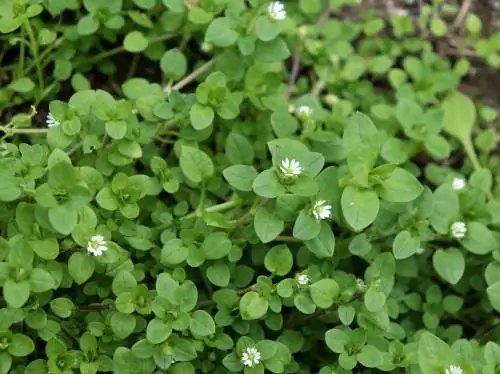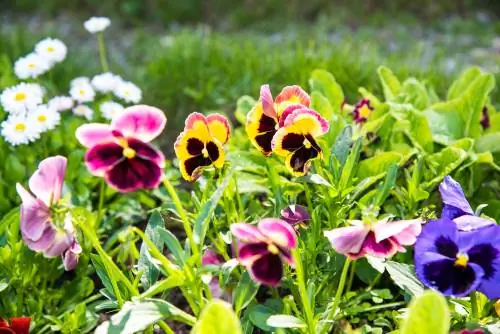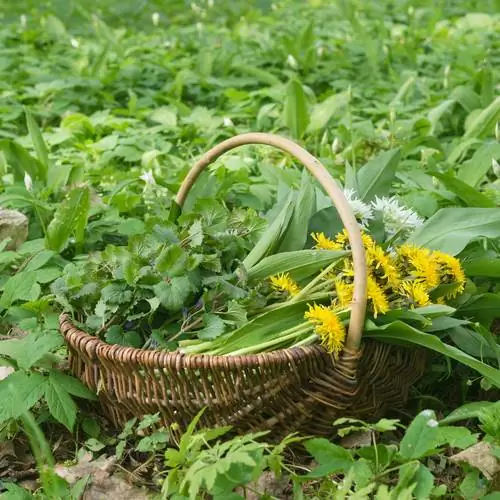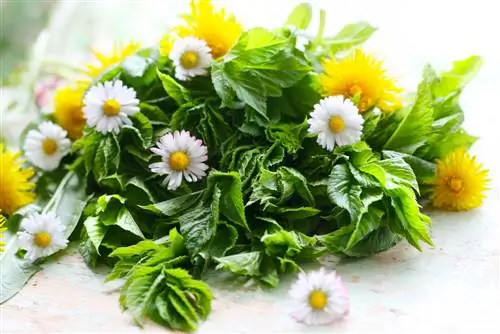- Author admin leonars@hobbygardeners.com.
- Public 2023-12-16 16:46.
- Last modified 2025-01-23 11:21.
Turtles are herbivorous animals. That's why they are often served lettuce leaves in this country. In their homeland they would look for spicier leaves. There, in the great outdoors, all sorts of he althy wild herbs are waiting for you. But you can also find some here.
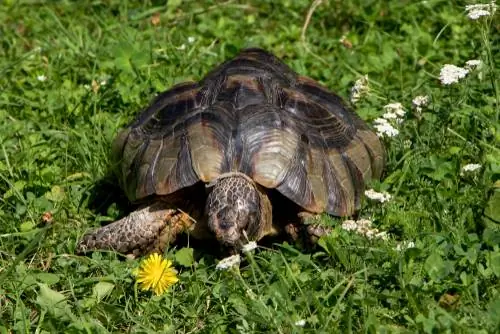
Which wild herbs are suitable for turtles?
Turtles like to eat wild herbs such as bear garlic, nettles, dandelions or daisies. The ideal collection time is in spring, when nutrient-rich fresh shoots are available. When choosing, pay attention to non-toxic, unfertilized plants and ensure variety in the feeding plan.
Wild herbs for turtles
The turtles' diet includes many edible wild herbs that are also native to us. For example, bear's garlic, nettle, broadleaf plantain, lungwort, daisy, cinquefoil, lady's mantle, evening primrose, chicory, large burdock, burdock bedstraw, dandelion, milk thistle, yarrow, narrow-leaved willowherb, ribwort plantain, pansy, deadnettle, chickweed, white clover and wild mallow.
Ideal collection time
Most wild herbs sprout again in spring. These fresh shoots are ideal food for turtles.
- they are nutrient rich
- have a lot of protein
- are low in crude fiber
Tip
Most of the wild herbs that are on the turtles' menu are also edible and he althy for us humans. You can therefore be bold when collecting and try things out.
Also feed older plants
Young shoots are particularly tender, which is why many turtle owners only pick them for their animals. But that's not optimal. Also collect older plant parts because they contain more fiber. Turtles need these as well as plenty of protein.
Tip
Turtles also need a lot of calcium. Since many wild plants contain little of it, you should also provide this substance. In the fall, distribute crushed limestone or dolomite to the animals' outdoor enclosure.
Dried herbs as supplementary food
A portion of the freshly collected wild herbs can be given to the turtles immediately. In addition, it makes sense to dry wild herbs. They can be fed as supplementary food at a later date.
What else needs to be taken into account?
Food plants for turtles must be selected carefully:
- they must not be fertilized
- pay attention to poisonous wild plants
- do not collect on the side of the road
- Choose low-protein and low-calorie types
- provide variety/feed different species
Search or grow?
Wild herbs grow everywhere and are free. However, the search can take time. That's why wild herbs can be searched for or specifically grown in your own garden. Sowing in pots on the balcony is also possible.
Tip
Mixtures of wild herb seeds are available in stores that are specially formulated for the care of turtles.

